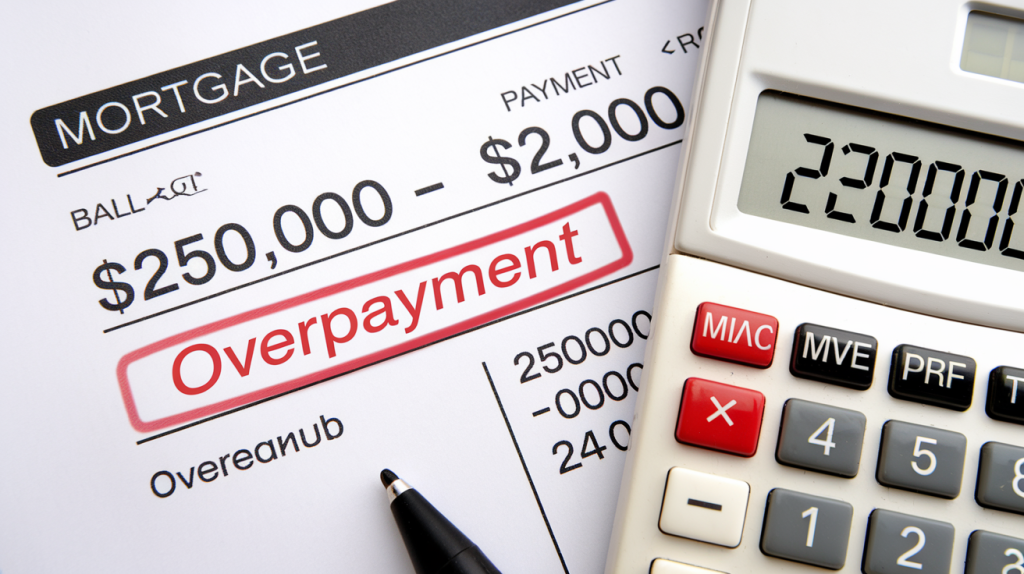A mortgage overpayment calculator is a simple tool that shows how paying extra on your home loan can save you thousands of dollars. If you’ve ever wondered, “What happens if I pay a little more each month?” this calculator has the answers. Let’s break down how it works, why it’s useful and how to make the most of it in 2024-2025.
What Is a Mortgage Overpayment Calculator?
A mortgage overpayment calculator is an online tool that lets you plug in your loan details (like your balance, interest rate, and term) and see how extra payments affect your mortgage. For example, if you pay $100 more each month, the calculator shows how much sooner you’ll own your home and how much interest you’ll save.
These calculators have been around for years, but in 2024, many banks and financial websites updated theirs to include new features. Some now factor in inflation rates or let you compare different payment strategies side-by-side.
How Does a Mortgage Overpayment Calculator Work?
Here’s a step-by-step example:
- Enter Your Loan Details: Start with your current mortgage balance (like $250,000), interest rate (say, 6%), and remaining term (e.g., 25 years).
- Add Your Extra Payment: Decide how much extra you want to pay each month. Let’s say $200.
- See the Results: The calculator will show your new payoff date and total interest saved.
For instance, paying an extra $200/month on a $250,000 loan at 6% could shorten your term by 5 years and save over $50,000 in interest. That’s like getting a free car!
Why Use a Mortgage Overpayment Calculator in 2024-2025?
- Save Money on Interest: Even small overpayments reduce the total interest you pay. In 2024, with interest rates still higher than pre-2020 levels, this matters more than ever.
- Pay Off Your Loan Faster: Owning your home sooner means more financial freedom.
- Test Different Scenarios: What if you pay $50 extra or $500 extra? The calculator lets you experiment without risking real money.
How to Use the Calculator Effectively
- Start Early: The sooner you overpay, the bigger the savings. Paying an extra $100/month in Year 1 saves more than starting in Year 10.
- Focus on High-Interest Debt First: If you have credit card debt (which often has 20%+ interest), pay that off before overpaying a 6% mortgage.
- Check for Fees: Some lenders charge penalties for overpaying too much. In 2025, most U.S. loans let you pay up to 20% extra per year without fees, but rules vary.
Real-Life Example: The Smith Family
The Smiths took out a $300,000 mortgage in 2023 at 6.5%. In 2024, they started paying an extra $300 per month using a mortgage overpayment calculator’s advice. The result:
- Loan Paid Off In: 22 years instead of 30.
- Interest Saved: $112,000.
- Extra Cash Spent: $300 × 12 months × 22 years = $79,200.
They saved more than they spent.
Common Mistakes to Avoid
- Ignoring Emergency Savings: Don’t put all your extra cash into your mortgage. Keep 3-6 months of expenses in savings first.
- Forgetting About Retirement: If your job offers a 401(k) match, contribute enough to get the full match before overpaying your mortgage.
Future Trends (2024-2025)
New tools are making mortgage calculators smarter. Some now link to your bank account to suggest safe overpayment amounts based on your spending habits. Others use AI to predict how inflation or job changes might affect your plan.
FAQs
Is there a downside to overpaying my mortgage?
Yes, if you don’t have emergency savings or higher-interest debt, overpaying might not be the best move.
Can I use a mortgage overpayment calculator for any loan?
Most work for fixed-rate mortgages. Adjustable-rate loans (ARMs) are trickier because interest rates change over time.
Do I need math skills to use the calculator?
No. Just type in your numbers and let the tool do the work.


